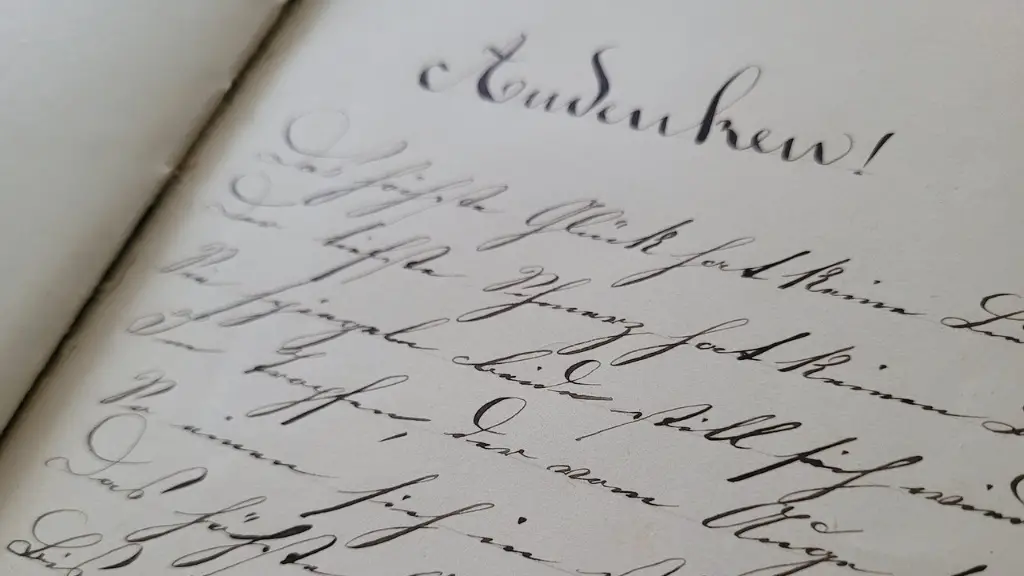The racial inequality of the 20th century
In the 1930s and 1940s, racial inequality and a struggle for basic human rights were core elements of life for many black people in the United States. This inequality manifest itself in everyday practices and judicial rulings that place white people in positions of power while denying black people basic rights and services. This was especially true for Langston Hughes, a prominent black writer of the period, who faced intense racial discrimination throughout his life.
Born in Joplin, Missouri on February 1, 1902, Langston Hughes grew up in a period of segregation. It was often difficult for him to find a job, as most employment opportunities in the South were highly prejudiced against the African American community. When he was fifteen, Hughes went to live with his grandmother in Lawrence, Kansas, where he completed his early schooling. It was in Lawrence that Hughes first began writing, attempting to make sense of his experiences with racism.
In 1925, Hughes enrolled in Columbia University in New York, where he studied along with other African American students. While pursuing his studies, Hughes continued to explore his interest in writing and published his first poems in Crisis, the official magazine of the NAACP. Despite this artistry, he was forced to leave school due to economic constraints.
After leaving college, Hughes stayed in Harlem and devoted himself to writing full-time. He wrote poetry and literary critiques, as well as a novel and several short stories. Hughes’ writing was often inspired by his own experiences, especially those involving racism and inequality. In his era, poems and stories about the life of African Americans were few and far between and therefore, much of Hughes’ work was met with resistance from the mainstream.
Though Hughes became a prominent figure in the African American literary tradition, he still faced tremendous obstacles. He was often denied publication because of his race and was subject to attacks from those who wanted to silence him. In the 1940s, Hughes was accused of promoting communism and damaging American ideals in his writings and was blacklisted by the U.S. government, preventing him from getting grants and awards.
His writing and activism were also seen as a threat by his contemporaries. As Hughes wrote during this era, he was often rejected by traditional literary circles, leading him to join the Communist Party, which in turn led to even more persecution from the government. Despite this, he continued to write, believing that he could use his words to fight for justice.
Langston Hughes was an incredible figure in literature and an important advocate for the rights of African American people. His life was full of challenges and difficulties, but his determination and resilience ultimately led to great impact in the literary world. Hughes wrote poetically and passionately about the struggles of African Americans and the need for progress in civil rights, inspiring future generations of writers and activists alike.
The Legacy Of Langston Hughes
One of the most significant legacies of Langston Hughes was the rise of Afro-American literature. Hughes helped break down many pervasive and detrimental stereotypes of African Americans by providing a platform where they could share their personal stories. This made it easier for authors to speak out against oppression and violence, as well as advocate for civil rights. Hughes also wrote about how African Americans could take pride in their own culture and find strength in their identity.
Hughes’s work also helped empower African Americans. His writing encouraged many of them to explore their own talents and passions, and he showed the world that African Americans had much to contribute to the literary and artistic scene. By using his words to capture the full range of black life in America, Hughes also showed others that African Americans had the potential to achieve greatness despite widespread racism.
In addition to being a great writer, Langston Hughes was also a strong advocate for African American civil rights. He took part in the civil rights movement and supported many protests, marches, and cultural events that aimed to fight against racism and discrimination. His activism gave African Americans the confidence and courage to stand up for their rights.
Langston Hughes is an inspiring figure in our history and his legacy continues to exist today. Although he faced a lot of challenges, Hughes was determined to make a positive change in the world. His life’s work is an example of how one person can bring about real change and impact the lives of countless others.
Opposition To Langston Hughes’ Ideas
Throughout his life and career, Langston Hughes faced strong opposition from many political and cultural authorities. Because of his race, Hughes often had difficulty finding publication for his work and was often subject to censorship by white publishers. He was also targeted by the United States government for his writings about race and for his support of the civil rights movement. His work was also seen as a threat by some of his contemporaries, who wanted him silenced and feared the power of his words.
When Hughes wrote about the struggles African Americans faced in his era, he was met with hostility and even hatred. He was accused of promoting communism and was even labeled a “red” by some. Hughes used his words to fight back against the racism and oppression he faced, which angered many white people who were used to having power. As a result, his work was often censored and he was denied public platforms.
Despite the opposition, Hughes continued to write passionately about the exploitation of African Americans, inspiring future generations of writers and activists. His work showed the reality of racism and its effects in the United States and exposed the injustices African Americans faced. Through his writing, he sought to show the power of African Americans and to invoke change.
Langston Hughes’ work was viewed by many as a threat to the existing power structure and many powerful people vehemently opposed him and his ideas. Despite these challenges, he was able to produce a vast amount of writing that resonated with African Americans, inspiring them to fight for their rights and dignity.
The Impact Of Langston Hughes’ Writing
The impact of Langston Hughes’ writing was profound. His work was instrumental in changing the perception of African Americans at the time, as well as inspiring future generations of writers, activists, and citizens. Through his poems, novels, and essays, Hughes sought to capture the full range of black life in America and to provide a platform where African Americans could celebrate their culture and heritage.
Hughes encouraged African Americans to stand up and fight against injustice, even when the odds seemed hopeless. His work gave black people the strength they needed to overcome centuries of discrimination. His writing also exposed many of the harsh realities of racism, inspiring future activists to take action.
Hughes’ writing is also standing the test of time, with his works still being studied and enjoyed today. His words continue to have relevance and resonance to many. He captured the struggles and hopes of African Americans in the 20th century and his writing still has the power to inspire and ignite change.
Honoring Langston Hughes’s Memory
Today, there are many ways to honor Langston Hughes’s legacy. There are memorials, statues, and parks dedicated to his life and work. Each year, various events are held to celebrate and commemorate the life of Langston Hughes. Scholarships, awards, and other educational initiatives have also been created in his name and his works are still studied in universities across the world.
In addition to physical memorials, Hughes’ legacy is also carried on through his work. His words continue to inspire and empower people to stand up for their rights, fight against racism and oppression, and celebrate the power of African American culture and heritage. Hughes was a great figure in literature and his work is a timeless testament to the potential of African Americans.
Langston Hughes left an indelible impact on both the literary world and the fight for civil rights. Although he faced many obstacles, his determination, resilience, and courage still inspire us today. His words, spirit, and legacy will live on forever.






hh bjnnh ñññññññññññññññb